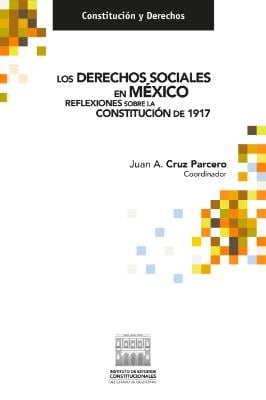
|
The Oxford Handbook of the Theory of International Law
This book provides a guide to the major thinkers, concepts, approaches, and debates that have shaped contemporary international legal theory. The book explores key questions and debates in international legal theory, offers new intellectual histories for the discipline, and provides fresh interpretations of significant historical figures, texts, and theoretical approaches. It considers many issues from the field of international legal theory, and provides a guide to the main themes and debates that have driven theoretical work in international law. The text features an introductory chapter (Theorizing International Law) followed by forty-eight chapters which aim to reflect the richness and diversity of this dynamic field. The book is divided into four parts organized around four themes: histories (Part I), approaches (Part II), doctrines and regimes (Part III), and debates (Part IV). The chapters in Part I, introduce some of the key theories and thinkers that are perceived to have provided the foundations of international legal theory and aim to create a methodological awareness of the historical dimension of that theory. The chapters in Part II reflect some of the different ways of categorizing approaches to the theory field. The chapters in Part III provide an overview of theoretical discussions relating to core doctrines and areas of contemporary international law whilst those in Part IV present some of the most existential and essential questions informing the discipline’s current state and likely future.
|

|
The Practice and procedure of the Inter-American Court of Human Rights
In a thoroughly revised second edition that incorporates the major changes made in the procedures and practice of the Inter-American Court since the original publication of this book, Jo M. Pasqualucci provides a comprehensive critique that is at once scholarly yet practical. She analyzes all aspects of the Court's advisory jurisdiction, contentious jurisdiction, and provisional measures orders through 2011. She also compares the practice and procedure of the Inter-American Court with that of the European Court of Human Rights, the Permanent Court of Justice, and the United Nations Human Rights Committee. She evaluates changes in the Rules of Procedure of the Inter-American Court that entered into force on January 1, 2010, and which substantially change the role of the Inter-American Commission in contentious cases before the Court. She also evaluates the challenges and means of State compliance with the Court's innovative reparations orders. Featuring revisions to every chapter to address the numerous new judgments, provisional measures, and orders adopted by the Court, this book will provide an important and updated resource for scholars, practitioners, and students of international human rights law.
|
|

|
Los derechos sociales en México: Reflexiones sobre la Constitución de 1917
El autor de estas líneas ofrece un recuento general de los derechos sociales desde su reconocimiento en la Constitución de 1917 hasta nuestros días. Ahí se destacan algunas tensiones en la forma en que se ha comprendido la Constitución y, especialmente, algunos momentos especiales en la teorización de los derechos sociales, sobre cómo se intentó protegerlos y la retórica que ha acompañado su desarrollo histórico. Se resalta el momento cardenista que impulsó un modelo de bienestar ambicioso que consolidaría el reparto agrario, extendería la educación pública, atendería la cuestión indígena y sentaría las bases para que después se fuera extendiendo la seguridad social a los trabajadores. También se destaca cómo la doctrina constitucional ofreció explicaciones de los derechos sociales constitucionales que los vaciaba de contenido normativo y los presentaba como normas programáticas o finalidades políticas sin que se concibieran como genuinos derechos. Esto permitió a los juristas seguir viendo a la Constitución como una de corte liberal sin tomarse en serio las tensiones que implicó la introducción de tal contenido social. Hoy día se asiste a una reconceptualización de los derechos sociales que los concibe como derechos genuinos y justiciables (derechos humanos), pero se advierte, a su vez, el reto de revalorar su dimensión política bajo un modelo ya no autoritario, sino democrático.
|
|
|
Transformaciones del derecho público: Fenómenos internacionales, supranacionales y nacionales
La presente obra está dedicada a las transformaciones democráticas del derecho público en América Latina y Europa, sin dejar de lado el análisis de fenómenos comparados y globales. Comprende diez estudios relativos a la investigación desarrollada entre 2014 y 2020 a partir de la agenda definida como transformaciones estructurales del derecho público (Strukturwandel des öffentlichen Rechts).1 Su propósito es sistematizar mi aproximación al derecho público transformador proveniente de los acervos jurídicos supranacionales, estatales e internacionales, aportando criterios para la construcción teórica emergente en este siglo XXI. La temática está agrupada desde el contexto iuspublicista de los textos escritos bajo una mirada alemana, pero europeizada e internacionalizada, unidos por el hilo conductor de la promoción de cambios estructurales a través del constitucionalismo transformador.
|
|
|

|
The Oxford Handbook of the Law of the Sea
Human activities have taken place in the world's oceans and seas for most of human history. With such a vast number of ways in which the oceans can be used for trade, exploited for natural resources and fishing, as well as concerns over maritime security, the legal systems regulating the rights and responsibilities of nations in their use of the world's oceans have long been a crucial part of international law. The United Nations Convention on the Law of the Sea comprehensively defined the parameters of the law of the sea in 1982, and since the Convention was concluded it has seen considerable development. This book provides an analysis of its current debates and controversies, both theoretical and practical. It consists of forty chapters divided into six parts. First, it explains the origins and evolution of the law of the sea, with a particular focus upon the role of key publicists such as Hugo Grotius and John Selden, the gradual development of state practice, and the creation of the 1982 UN Convention. It then reviews the components which comprise the maritime domain, assessing their definition, assertion, and recognition. It also analyzes the ways in which coastal states or the international community can assert control over areas of the sea, and the management and regulation of each of the maritime zones. This includes investigating the development of the mechanisms for maritime boundary delimitation, and the decisions of the International Tribunal for the Law of the Sea. The book also discusses the actors and intuitions that impact on the law of the sea, considering their particular rights and interests, in particular those of state actors and the principle law of the sea institutions. Then it focuses on operational issues, investigating longstanding matters of resource management and the integrated oceans framework. This includes a discussion and assessment of the broad and increasingly influential integrated oceans management governance framework that interacts with the traditional law of the sea. It considers six distinctive regions that have been pivotal to the development of the law of the sea, before finally providing a detailed analysis of the critical contemporary issues facing the law of the sea. These include threatened species, climate change, bioprospecting, and piracy.
|
|
|

|
The Oxford Handbook of Jurisdiction in International Law
Jurisdiction in international law limits the exercise of legal authority over international legal subjects. Yet, despite the fundamental role that jurisdiction plays in international law, the concept remains underdeveloped. Discussions of jurisdiction in international law regularly refer to classic heads of jurisdiction based on territoriality or nationality or use the SS Lotus decision of the Permanent Court of International Justice (PCIJ) as a starting point. However, traditional understandings of jurisdiction are facing new challenges. Globalization has increased the need for jurisdiction to be applied extraterritorially, non-state forms of law provide new theoretical challenges and intersections between different forms of jurisdiction have become more intricate. Consequently, it is necessary to re-examine the concept of jurisdiction in international law with reference to its history, its contemporary application and how it needs to adapt to encompass future developments in international law. This book provides an authoritative and comprehensive analysis of the concept of jurisdiction in international law. It provides fresh insights into the practical and theoretical function and content of the doctrine of jurisdiction in contemporary international law. By examining the concept of jurisdiction in international law thematically, the book considers jurisdiction from historical, theoretical and practical perspectives. It examines some of the most contentious elements of jurisdiction by considering how the concept is being applied in specific substantive and institutional settings. The book is an invaluable resource for academics, students and practitioners with an interest in the role of jurisdiction in international law.
|
|
|
|
|